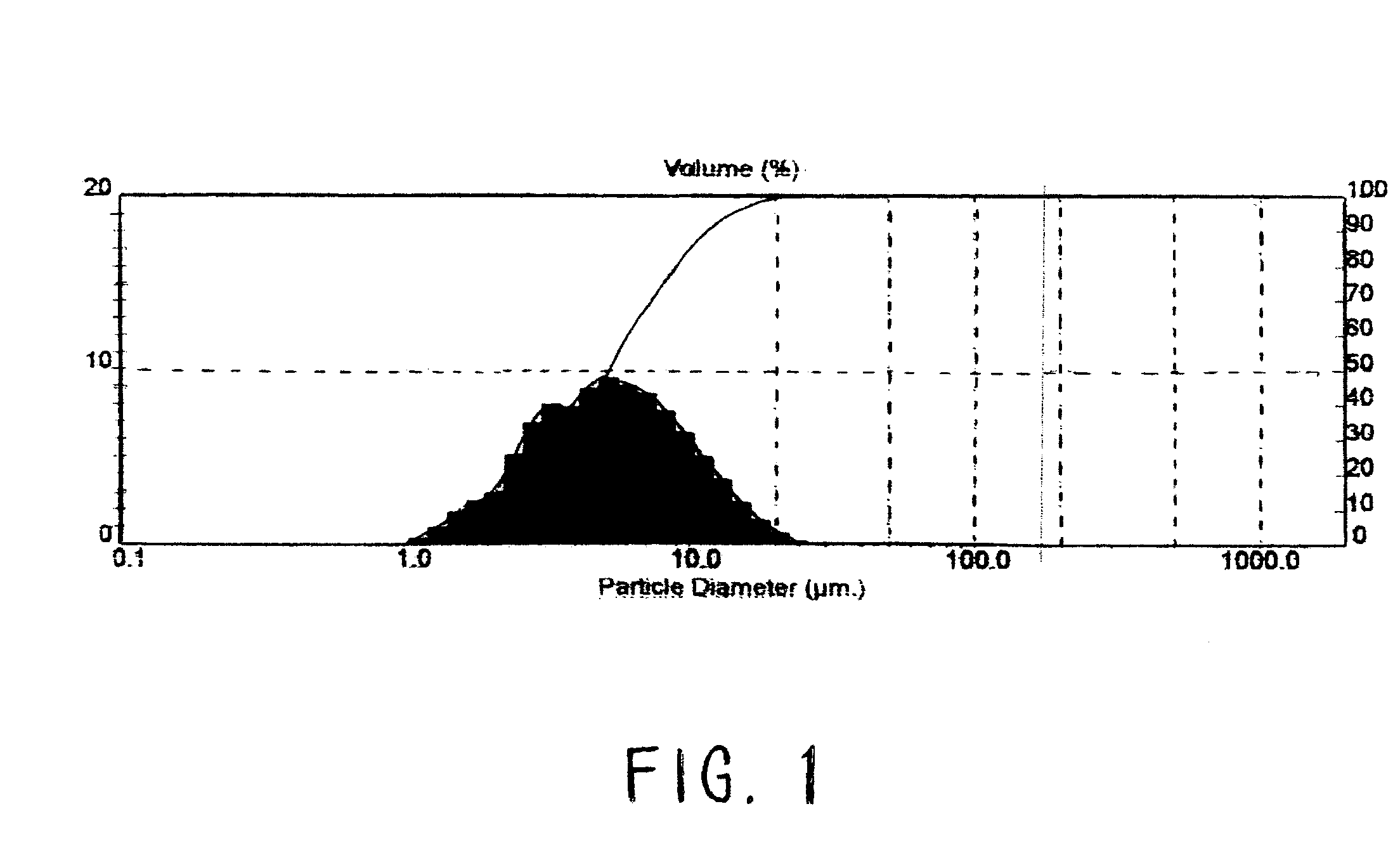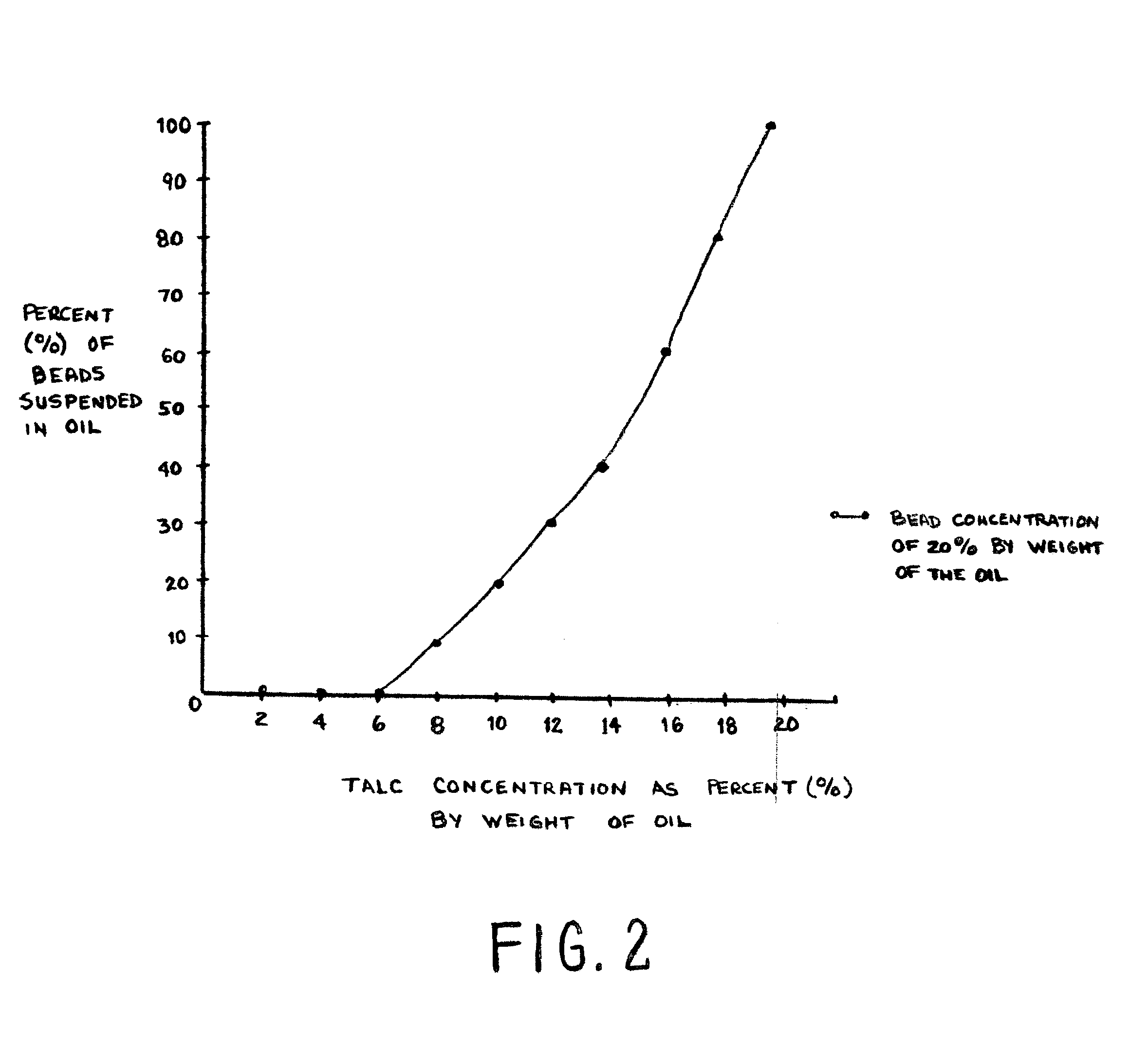Drilling fluid additive system containing graphite and carrier
a technology of additive system and drilling fluid, which is applied in the direction of earth drilling and mining, chemistry apparatus and processes, and wellbore/well accessories. it can solve the problems of drilling assembly becoming stuck to the wall cake, less efficient solids, and difficult to achiev
- Summary
- Abstract
- Description
- Claims
- Application Information
AI Technical Summary
Benefits of technology
Problems solved by technology
Method used
Image
Examples
example 1
[0052] Test 4: Texture of Dynamic Filter Cake Surfaces
[0053] The texture of the filter cake surfaces and the surfaces of the base mud were also tested. The results were as follows: the texture of the surface of the base mud was extremely smooth and shinny. The texture of the Dynamic Filter Cake Surface of the base mud treated with 2% by volume of the talc, bead and oil mixture was shinny and the copolymer beads could be seen impregnated in the cake as well as protruding on the surface of the cake.
EXAMPLE 2
[0054] Test 1: Rheology & HPHT Results
[0055] In Example 2, a 16.9 pound per gallon water-based drilling fluid was tested for the (a) the compatibility of the drilling fluid-such as rheology; and the yield point and gels in particular; (b) the high pressure high temp fluid loss-HPHT; (c) the filter cake wt. / gram; and (d) the filter cake thickness (in inches). Parameters were first tested on the base mud. By comparison, 2 percent (%) by volume of the oil, talc and the beads mixture w...
example 2
[0063] Test 4: Texture of Dynamic Filter Cake Surfaces
[0064] The texture of the filter cake surfaces and the surfaces of the base mud were also tested. The results were as follows: the texture of the surface of the base 16.9 ppg mud was smooth and shinny. The texture of the Dynamic Filter Cake surface of the base mud treated with 2% by volume of the talc, bead and oil mixture was shinny and the copolymer beads could be seen impregnated in the cake as well as protruding on the surface of the cake.
example 3
[0065] Reduction in Capillary Attractive Forces of Examples 1& 2
[0066] In Example 3, the (dynamic) filter cake of the base mud was placed on a flat surface and a piece of glass 1 / 4 inch thick and four inches square was placed flat on the surface of the base mud filter cake and allowed to sit for thirty minutes. An attempt was then made to lift the glass from the filter cake. As the glass plate was lifted, the filter cake followed and it was as though the filter cake was glued to the glass.
[0067] The (dynamic) filter cake of the base mud to which 2% of the additive of the present invention was added was placed on the flat surface and the same process discussed above was duplicated. It was found that the piece of glass easily separated from the filter cake surface, which was treated with the additive of the present invention. The results show that the additive mixture of the present invention definitely reduced, if not, eliminated the capillary attractive forces of the wall cake.
[0068...
PUM
| Property | Measurement | Unit |
|---|---|---|
| size | aaaaa | aaaaa |
| specific gravity | aaaaa | aaaaa |
| thickness | aaaaa | aaaaa |
Abstract
Description
Claims
Application Information
 Login to View More
Login to View More - R&D
- Intellectual Property
- Life Sciences
- Materials
- Tech Scout
- Unparalleled Data Quality
- Higher Quality Content
- 60% Fewer Hallucinations
Browse by: Latest US Patents, China's latest patents, Technical Efficacy Thesaurus, Application Domain, Technology Topic, Popular Technical Reports.
© 2025 PatSnap. All rights reserved.Legal|Privacy policy|Modern Slavery Act Transparency Statement|Sitemap|About US| Contact US: help@patsnap.com


